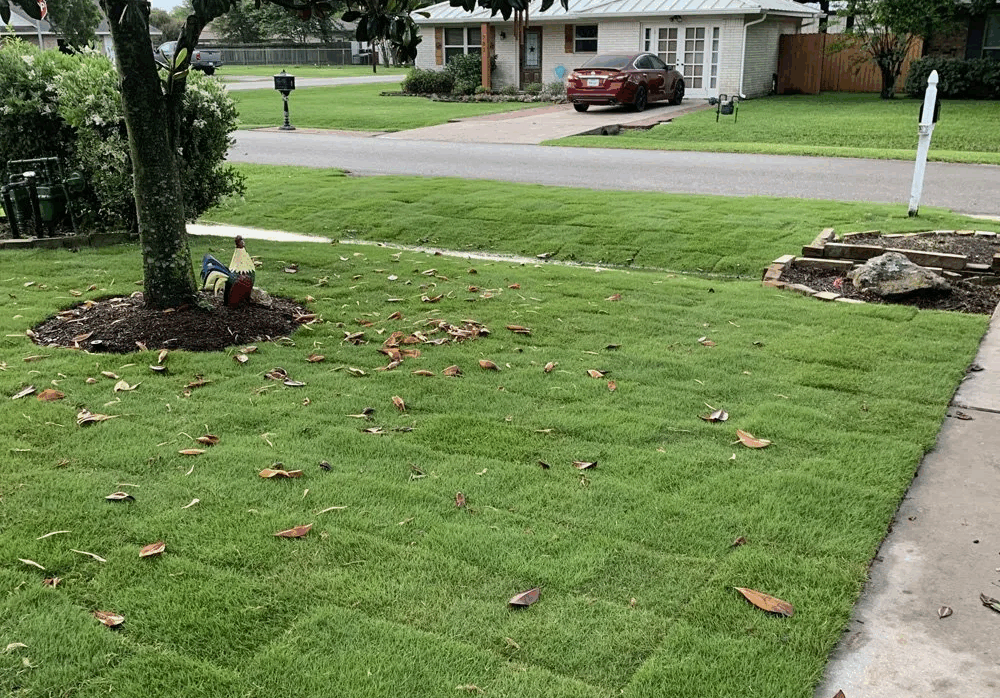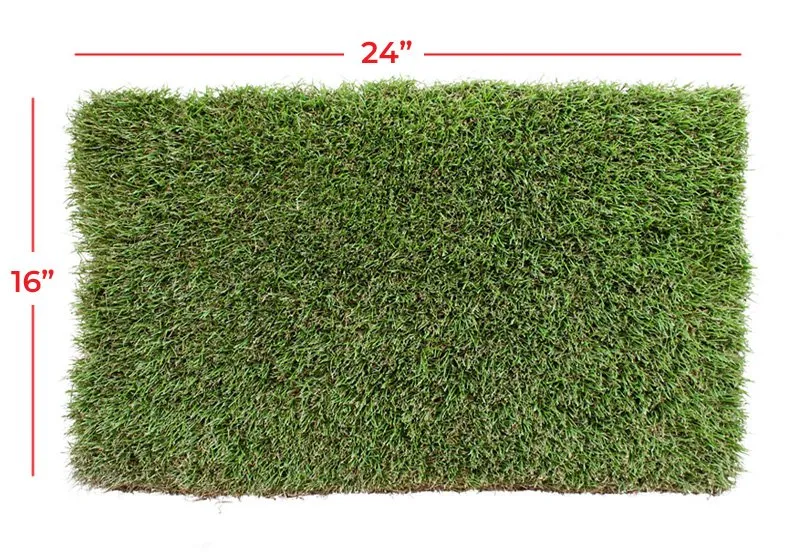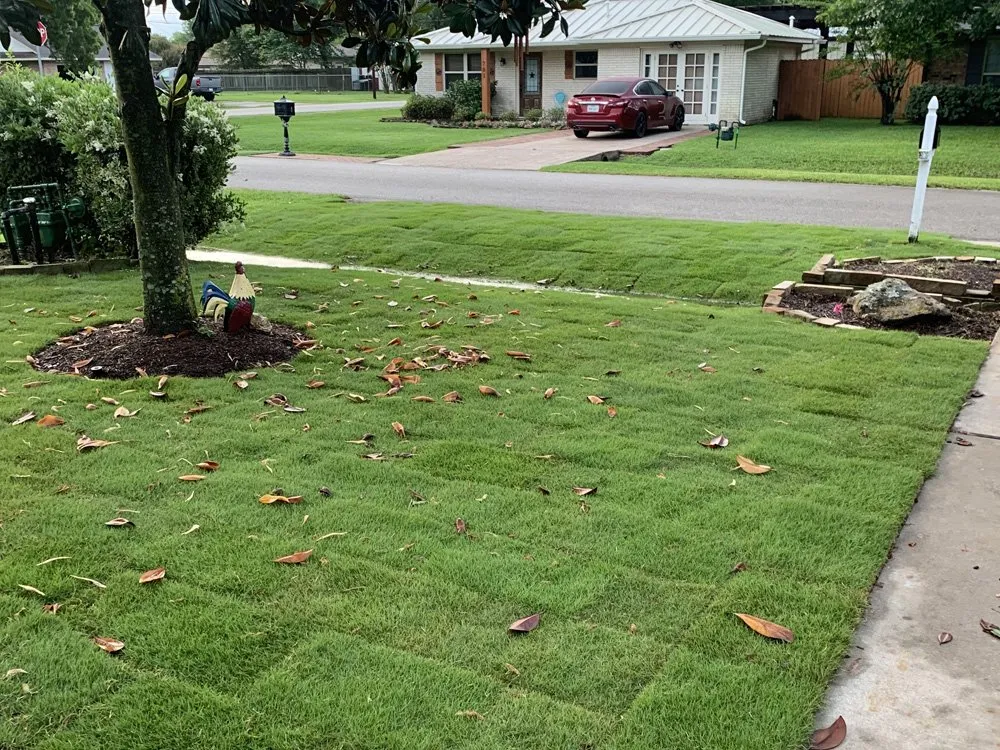Natural Lawn Care Tips for Zeon, Zorro, and Emerald Grass
Maintaining a beautiful, healthy lawn year-round requires a thoughtful, consistent approach—especially when working with premium varieties like Zeon Zoysia, Zorro Zoysia, and Emerald Zoysia. These fine-textured, shade-tolerant grasses offer unparalleled aesthetics and performance in warm climates. However, each requires tailored care to truly thrive. Below is an in-depth guide packed with seasonal lawn care routines, watering schedules, mowing advice, and fertilization plans to help your Zeon, Zorro, and Emerald lawns stay lush and resilient throughout the year.
🌱 Spring Lawn Care: Wake Up and Revitalize
Mowing Tips for a Healthy Start
As your lawn emerges from dormancy, begin mowing once the grass reaches 2–2.5 inches in height. Use a sharp mower blade and avoid scalping. Zeon and Zorro prefer a mowing height of 1 to 1.5 inches, while Emerald performs best between 1.5 and 2 inches. Never cut more than ⅓ of the blade in a single mow to reduce stress.
Fertilization in Early Spring
Apply a balanced fertilizer (16-4-8 or 15-5-10) when soil temperatures reach 55°F consistently. This promotes strong root development and greening. Use slow-release nitrogen to ensure steady growth. For Zeon and Zorro, 0.5 to 1 pound of nitrogen per 1,000 sq ft is optimal. Emerald should receive slightly less—around 0.5 pounds per 1,000 sq ft.
Weed Control & Pre-Emergent Applications
Prevent summer weeds by applying a pre-emergent herbicide in early spring. Choose one with prodiamine or dithiopyr to prevent crabgrass and goosegrass from taking over. Always water it in with at least 0.25 inches of irrigation.
 ☀️ Summer Lawn Care: Growth & Stress Management
☀️ Summer Lawn Care: Growth & Stress Management
Watering Schedules for Heat Tolerance
In the heat of summer, deep and infrequent watering is essential. All three Zoysia types prefer 1 to 1.25 inches of water per week, including rainfall. Water early in the morning (between 5–9 a.m.) to minimize evaporation and reduce the risk of disease. Look for signs of drought stress such as folded blades, bluish-gray color, or footprints that linger.
Summer Mowing Routine
Mow every 7–10 days, depending on growth. In extreme heat, raise your mowing height by 0.5 inches to reduce stress. Always keep mower blades sharp to avoid tearing grass blades.
Insect and Disease Control
Watch for signs of chinch bugs, billbugs, and armyworms. Apply a broad-spectrum insecticide if pests are visible or damage is noticeable. For fungal issues like brown patch or dollar spot, apply a fungicide with azoxystrobin or propiconazole early in the season as a preventive measure.
Mid-Summer Fertilization
Apply a second round of fertilizer, preferably a low-nitrogen formula (like 10-0-14) with added potassium to improve drought resistance. Avoid high nitrogen applications in extreme heat to prevent burn and stress.
 🍂 Autumn Lawn Care: Fortify Before Dormancy
🍂 Autumn Lawn Care: Fortify Before Dormancy
Final Fertilization Timing
Apply a final dose of fertilizer in late September to early October, using a mix rich in potassium and phosphorus to promote root strength and carbohydrate storage. This helps the lawn survive winter dormancy.
Dethatching and Aeration
Zoysia grasses are prone to thatch buildup. If your lawn feels spongy or water pools, dethatch using a vertical mower. Combine with core aeration to reduce compaction and improve nutrient absorption. Best done in early fall while the grass is still actively growing.
Weed Prevention
Apply a pre-emergent herbicide to prevent winter weeds such as poa annua. Choose a product safe for Zoysia varieties and apply before soil temperatures drop below 70°F.
Mowing Before Dormancy
Gradually reduce mowing frequency as growth slows. For the last mow before winter, lower your cutting height slightly (not below 1 inch) to reduce the risk of fungal diseases during dormancy.
❄️ Winter Lawn Care: Dormancy and Protection
Avoid Foot Traffic
Dormant Zoysia grass is more vulnerable to damage. Minimize foot traffic during frosty periods to avoid breaking brittle grass blades and compacting the soil.
Irrigation in Dry Winters
If winter is dry and there’s no rainfall for more than two weeks, apply a light watering (0.25 to 0.5 inches) to maintain root hydration. Avoid overwatering, as it may lead to fungal issues.
No Fertilization or Mowing
Do not fertilize dormant grass. Doing so can encourage growth that will not survive the cold, leading to long-term damage. Mowing is unnecessary unless there’s significant growth from winter weeds.
🌿 General Best Practices for Zeon, Zorro & Emerald Zoysia
Soil Testing & pH Balancing
Test your soil every 2–3 years to ensure pH levels remain between 6.0 and 6.5, which is ideal for Zoysia. Apply lime or sulfur as needed based on test results.
Proper Lawn Equipment
Use reel mowers or rotary mowers with sharp blades for a clean cut. Dull blades shred grass, increasing disease susceptibility.
Edge and Trim Regularly
Maintain crisp lawn edges by trimming around walkways, patios, and garden beds. This promotes uniform growth and discourages invasive weeds.
Overseeding for Density
If your lawn develops thin patches, overseed with the same Zoysia cultivar during the growing season. Lightly rake the area, spread seed, and top-dress with compost or sand.
🌤️ Monthly Care Schedule (Quick Overview)
| Month | Tasks |
|---|---|
| January | Minimal activity; avoid traffic |
| February | Inspect for winter weeds |
| March | Pre-emergent herbicide, first mow, soil test |
| April | Fertilization, mowing, watering begins |
| May | Insect check, regular mowing, spot weed control |
| June | Deep watering, mow weekly, apply fungicide |
| July | Low-nitrogen fertilizer, pest inspection |
| August | Continue watering, raise mow height |
| September | Final fertilizer, dethatch & aerate |
| October | Pre-emergent herbicide, lower mow height |
| November | Reduce watering, prepare for dormancy |
| December | No activity unless drought occurs |
Conclusion
By understanding the unique needs of Zeon, Zorro, and Emerald Zoysia, you can keep your lawn vibrant, resilient, and picture-perfect all year long. Implementing a strategic care routine across the seasons not only enhances curb appeal but also strengthens your lawn against weeds, pests, and drought. Whether you are a lawn enthusiast or a professional landscaper, consistent, customized care makes all the difference in achieving a lush, green lawn.
Last Updated on 4 weeks ago by Anjali Mehra Ph.D. in Horticulture (Punjab Agricultural University)
- Best Lawn Grass for Cold Climate in Kashmir - March 1, 2026
- Lawn Grass Lifespan in India – Which Grass Lasts Longest? - February 23, 2026
- Can Lawn Grass Grow Without Direct Sunlight? (2026 Expert Guide) - February 12, 2026

 ☀️ Summer Lawn Care: Growth & Stress Management
☀️ Summer Lawn Care: Growth & Stress Management 🍂 Autumn Lawn Care: Fortify Before Dormancy
🍂 Autumn Lawn Care: Fortify Before Dormancy